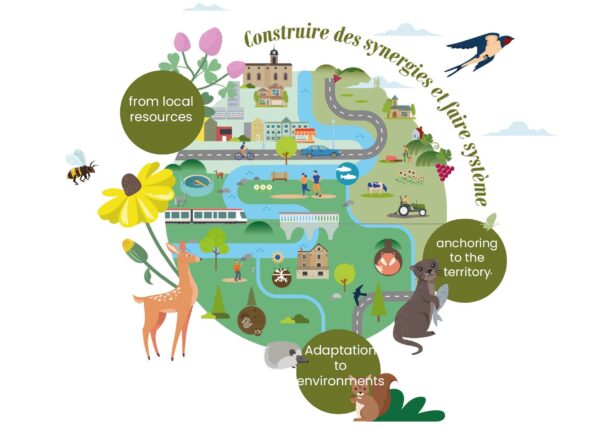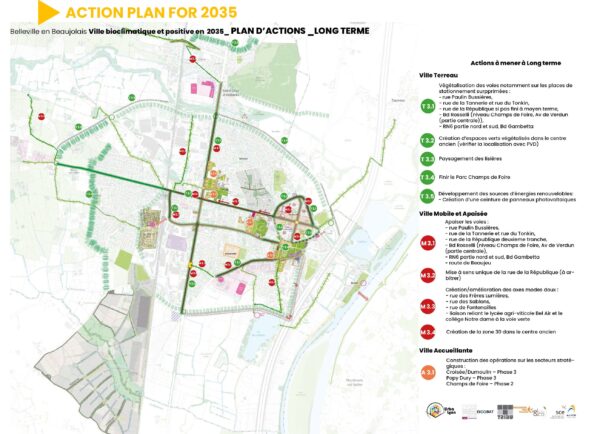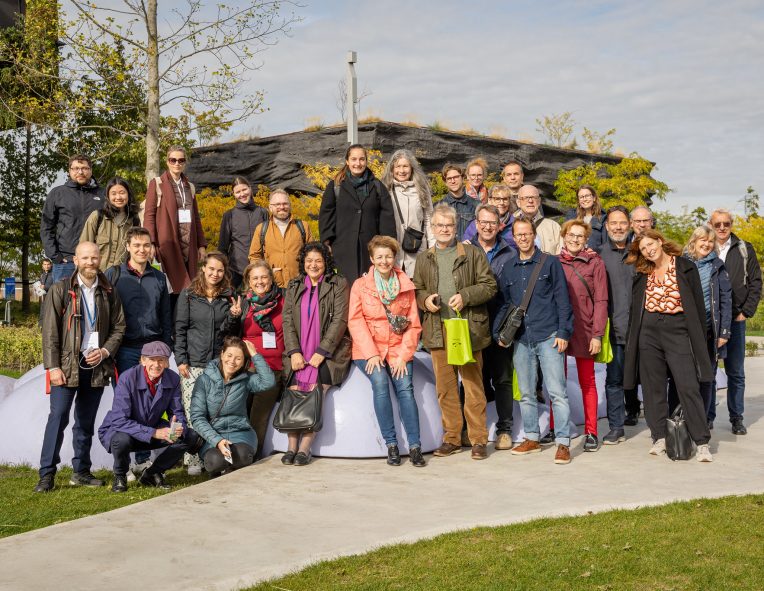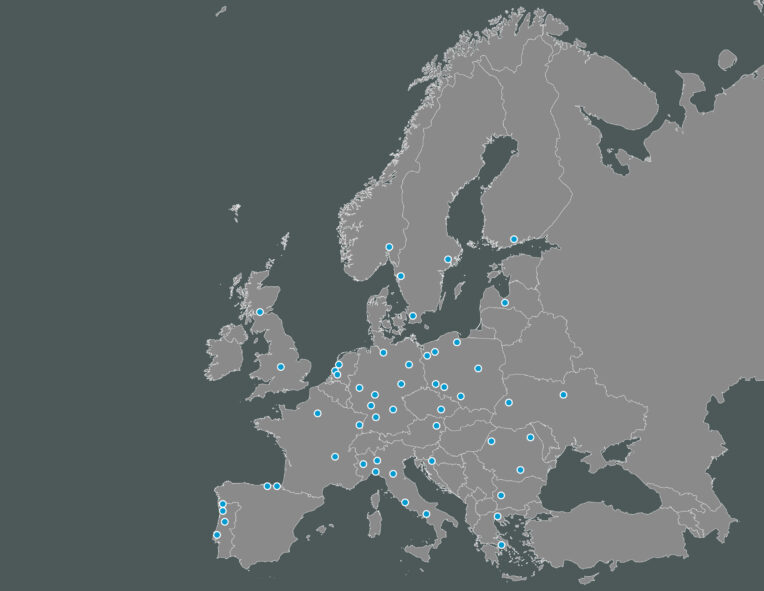GrandLyon & Beyond
Karen McCormick, Senior Urbanist UrbaLyon

A complex and robust example of territorial cooperation beyond the metropolitan borders, with the involvement of the private sectors (real estate and business companies for the eco-construction productive chain)
Over the years it has changed and adapted its scope along with the challenges posed by territorial development of the area. First, the Atelier d’urbanisme de la Ville de Lyon (1961), then the Atelier d’urbanisme de la Communauté urbaine (1969), then Agence d’urbanisme (1978) de l’agglomération lyonnaise (1997) and finally the Agence d’urbanisme de l’aire métropolitaine lyonnaise (2015).
The bioclimatic and positive master plan of the city of Belleville in Beaujoulais concerns a polarity of 15,000 inhabitants 45km north of Lyon. The engagement of the Urban Planning Agency (UrbaLyon) made possible to set up a multidisciplinary team combining a number of skills useful to address this particular territory embracing the management of water, soil and subsoil, landscape, urban and heritage aspects, mobility and energy. Among the main goals were also a specific focus on the public facilities’ improvement (sports, cultural spaces and school) both in terms of energy adaptation of the buildings and dense hybridization of different uses. The master plan and the action program, besides being organised in phases, were developed in one year and amounted to approximately €150k.
The technical engineering services of the city and the intermunicipal aggregation have merged to multiply the capacity and better serve this new territorial polarity.
Interdisciplinary approach
The strength of the project lies in the transversal approach of the thematic expertise which has promoted synergies and created an ecosystem.
This is based on three guiding principles:
1. value local resources,
2. adapt local know-how and
3. involve local actors.
For example, the landscape strategy developed serves both the ecological approach to water and run-off management issues, as well as climate change adaptation and active mobility infrastructures (walking and cycling paths).
The Master Plan’s implementation
Conceived as a flexible guide defying the rhythm of the project’s implementation, the master plan was organised in four sections:
- The first one is the fertile city. Built around the concept of biodiversity, this layer was aimed at strengthening the ecosystems of the territory and carrying out the adaptation made necessary by climate change.
- The second one is the mobile and peaceful city. It is based on the creation of soft mobility systems and pedestrian paths.
- The third one is the the welcoming and lively city. Incentivising private investments, it foresees 1,200 new houses and 600 renovated houses. The aim is to generate a lot of housing to meet a growing population of a railway station city within the new metropolitan area and generate a critical mass to structure the local construction sector. Difficulties in matching the local housing market costs and the quality standards of construction led to the development of the local branches of eco-construction with the involvement of local eco-construction companies and sector organizations.
- The fourth, the project management.
Conditions of success
- Engagement of the local community, actors, citizens and companies.
- The coordination between the local technical services of the town and the intermunicipal level.
- A charismatic, visionary and pragmatic Mayor acting in sync with the director general of the technical services (the same for the city and the inter-municipality).
- The creation of a project hub called the House of Transition as a space to communicate the progress of the project and organise local activities.
- A full-time job for fundraising management.
- Management of team meetings with the project director allowing for revisions and adjustments in progress.

Action Plan_long_terme
Please visit the page Metropolitan Partnerships in action across Urban and Rural to know about more cases from across Europe.


